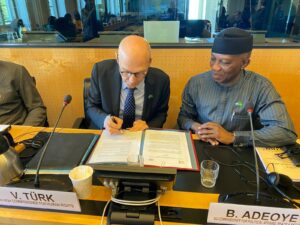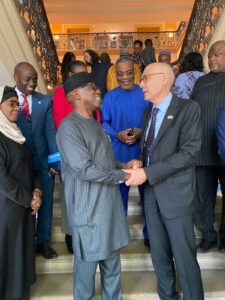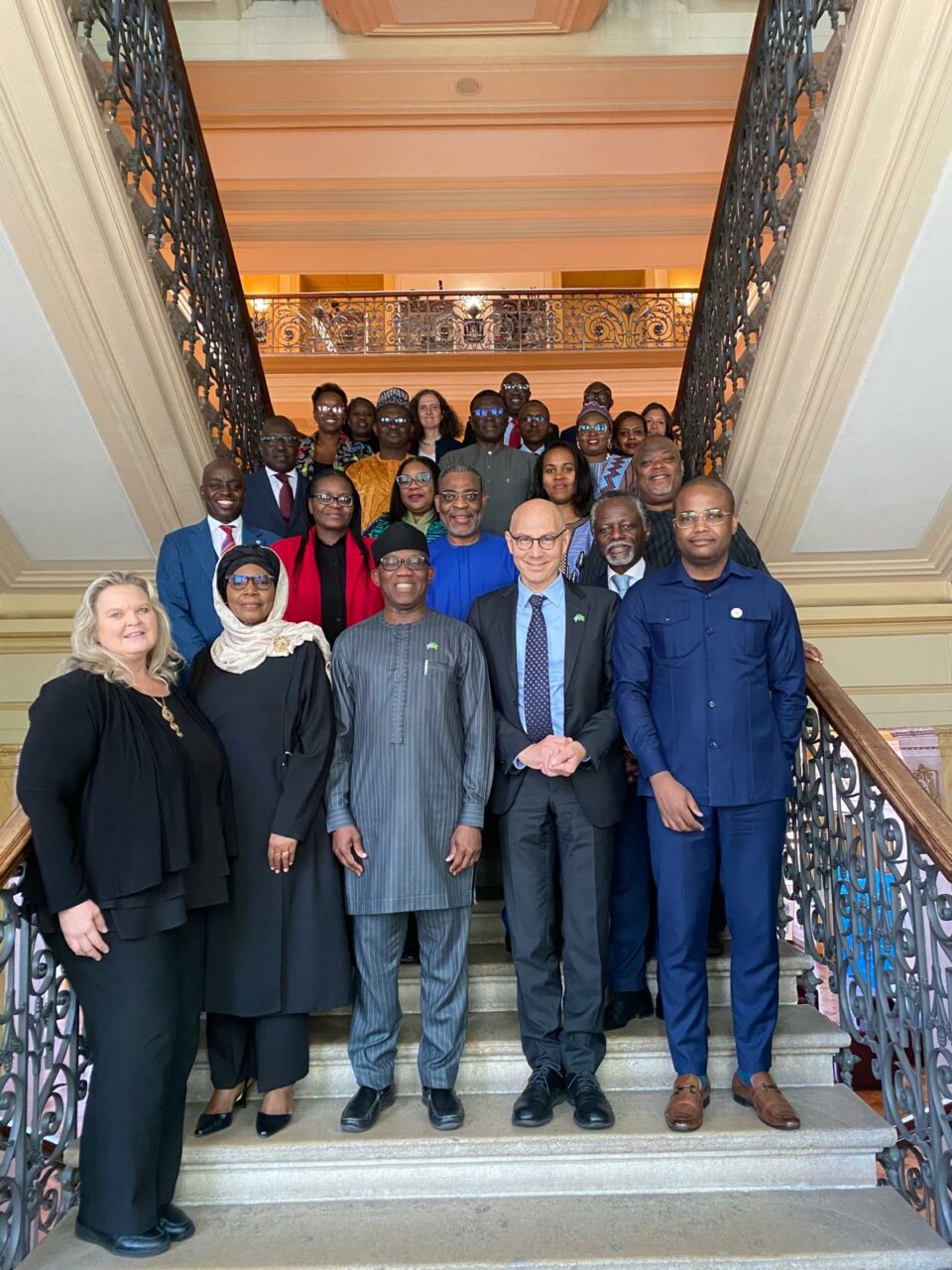

Geneva, May/15 / 2025
African Union (AU) and the United Nations (UN) convened their second High-Level Dialogue on Human Rights in Geneva, reaffirming their joint commitment to advancing human rights, addressing historical injustices, and enhancing cooperation on peace, security, and development.
Co-chaired by UN High Commissioner for Human Rights Volker Turk and AU Commissioner for Political Affairs, Peace, and Security Ambassador Bankole Adeoye, the Dialogue built on the outcomes of the inaugural 2018 meeting in Addis Ababa, which culminated in the adoption of the AU-UN Joint Framework on Human Rights in November 2023.
Reparatory Justice as a Catalyst for Sustainable Development.
A key focus of the discussions was the AU’s 2025 theme: “Justice for Africans and People of African Descent through Reparations.”Both organizations emphasized that unresolved historical injustices including the transatlantic slave trade and colonialism continue to perpetuate systemic racism, inequality, and underdevelopment.
“Reparatory justice is not merely a moral obligation but a prerequisite for inclusive growth and social cohesion,” stated Ambassador Adeoye. The Dialogue underscored the need for reparations processes to be guided by the perspectives of Africans and the African diaspora, ensuring that past atrocities are addressed through meaningful redress mechanisms.
Strengthening Human Rights in Peace and Security
The AU and UN highlighted the critical role of human rights compliance in peacekeeping operations, referencing the AU Compliance and Accountability Framework (AUCF) and UN Security Council Resolution 2719, which mandates adherence to international human rights and humanitarian law as a condition for UN funding.
“Human rights benchmarks are not optional they are an operational necessity for effective peace support missions,” said High Commissioner Turk. The Dialogue also stressed the importance of integrating human rights into the AU Continental Early Warning System (CEWS) to prevent conflicts and sustain peace.
Women, Youth, and Inclusive Participation
Recognizing the pivotal role of women and youth in peacebuilding, both institutions committed to advancing gender-responsive policies, including the Maputo Protocol the AU Convention on Ending Violence Against Women and Girls (CEVAWG), and the African Youth Charter.
“Empowering women and youth in decision-making is essential for sustainable development,” noted a joint statement, calling for enhanced participation in human rights mechanisms.

Enhanced AU-UN Collaboration
The Dialogue outlined a roadmap (2025-2028) to implement the Joint Human Rights Framework, aligning with the AU Human and Peoples Rights Decade Action Plan and Agenda 2063.
Key commitments include:
Strengthening cooperation between AU and UN human rights mechanisms.
Mainstreaming human rights in AU peace support operations via the AUCF.
Integrating human rights perspectives into conflict prevention under UNSCR 2719.
Ensuring AU strategic engagement in the UN Human Rights Council and related bodies.
The AU and UN agreed to hold their third High-Level Dialogue in Addis Ababa in 2026 maintaining momentum on shared human rights priorities.
Emebet Asefa , Correspondent




